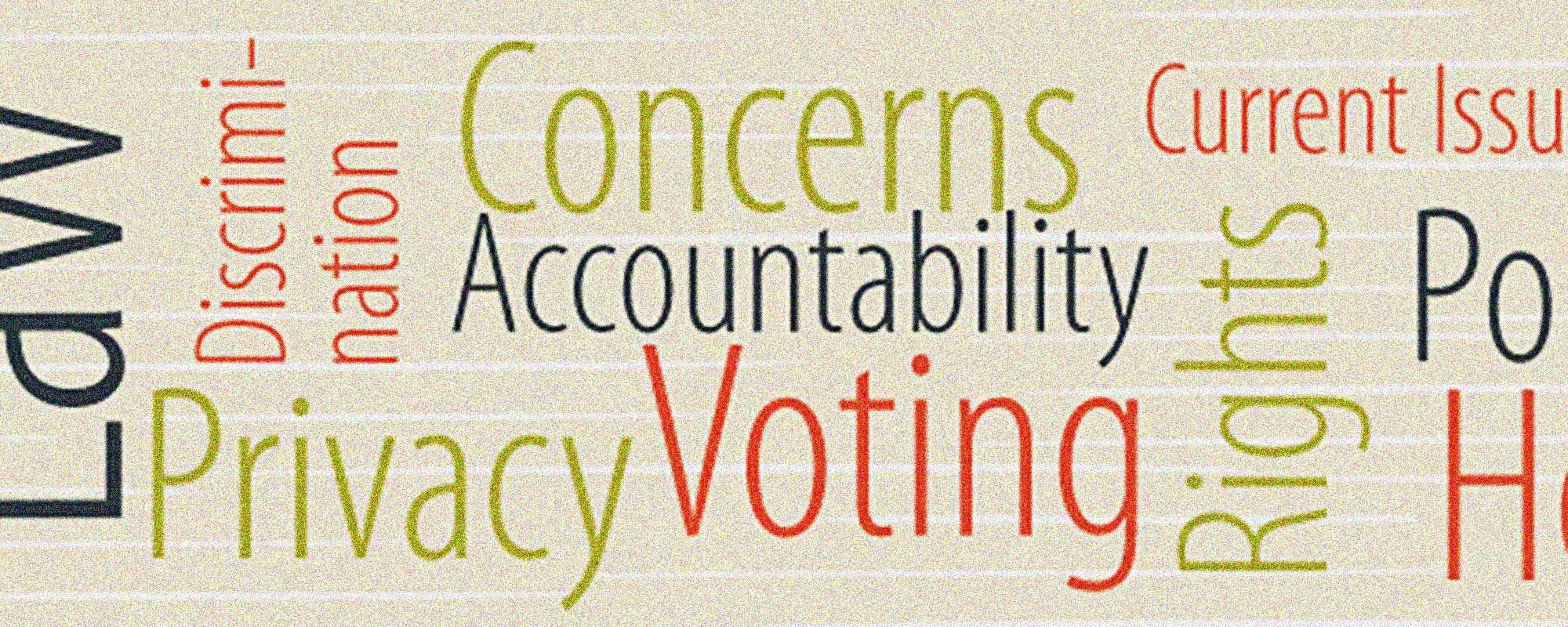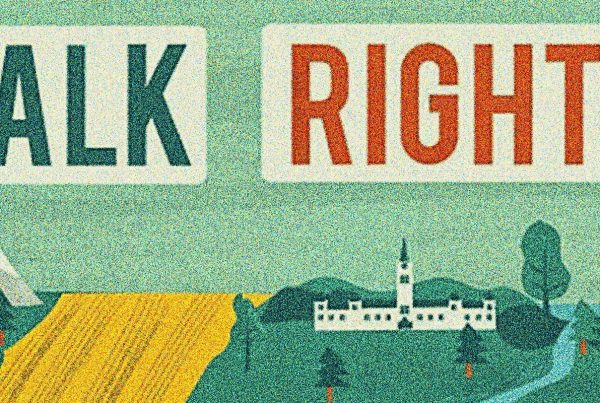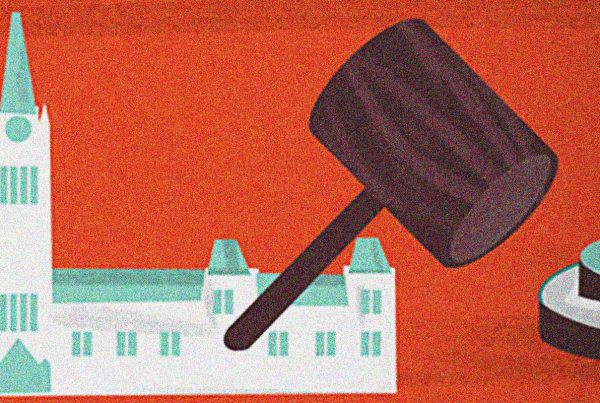This article is part of a series of interviews with advocates, legal thinkers, community organizers and academics on issues related to Canadian civil liberties produced by CCLA volunteers. All responses are the interview subject’s own, and do not necessarily represent the viewpoint or positions of the CCLA.
Gary Malkowski is the Vice President at the Canadian Hearing Society. The society is a non-governmental organization that provides products, services and information designed to increase access to communication and promote equity for people who are culturally Deaf, oral deaf, deafened and hard of hearing.
CCLA: What accessibility rights does the law grant?
GM: There’s several levels of rights granted to deaf people: international, federal, and provincial legislation.
For international law, we look to the United Nation’s Convention for Rights with Persons with Disabilities. This treaty has been signed and ratified in Canada and the optional protocol is expected to be signed and ratified in the near future.
Federally, we have Canadian Human Rights Act, which includes the duty to accommodate persons with disabilities and provide translating services for deaf and hard of hearing people. The Act covers all registers federal programs that offer services, all allows deaf and hard of hearing people to get services in employment, housing, and professional or vocation associations. In addition, the government is drafting the Federal Accessibility Legislation that will be introduced in the House of Commons soon.
We also have the Charter of Rights and Freedoms which supersedes all legislation. S 14 of the Charter includes the right to interpreters in criminal and legal proceedings and S 15.1 guarantees the right to equal benefit and equal protection under the law. Two important Supreme Court decisions, Eldridge, and Canadians Associations for the Deaf, require all levels of government to accommodate any requests for a deaf and hard of hearing person if they need an interpreter.
Provincially, in Ontario, we have the Ontario Human Rights Code and the Ontarians with Disabilities Act.
The provisions in the Human Rights Code cover all provincial employers, professional organizations, vocational associations, memberships, and provincially run facilities. This legislation gives a duty to accommodate and provide interpreters.
The Ontarians with Disabilities Act covers organizations over 10,000 people including employees and volunteers. Municipalities for example, are required to have municipal accessibility advisory committees. The Act requires that all these organizations develop an annual accessibility plan, and that all these organizations provide accommodation and accessibility training. It also requires that organizations have internal accessibility and anti-ableism policies.
CCLA: What measures are organizations required to take to accommodate deaf and hard of hearing people?
GM: In Ontario, we have the Ontario with Disabilities Act and Ontario Human Rights Code. Both of those require organizations to develop an accessibility or accommodation policy. For anyone who comes in into our offices to receive services, for example, we have a legal duty to accommodate and provide an interpreter upon request. If the deaf or hard of person emails and requests an interpreter, it’s incumbent upon the business or agency to provide one.
CCLA: Have these accommodations been met by employers and organizations?
GM:It depends. Government services will absolutely provide an interpreter. Our experience is that the federal and provincial governments will always provide an interpreter upon request. When we look at financial institutions or telecommunication providers like Bell Canada or Rogers, they pretty much provide an interpreter upon request.
I think the issue lies with small businesses. Many feel they cannot financially afford to provide an interpreter. If this happens, deaf people can then contact the Ontario Human Rights Commission to explore the business’s duty to accommodate, However, some small businesses are more than willing to accommodate and some just aren’t aware of their duty. Unfortunately, there is a diverse response when requesting translators.
The reality is that there are few interpreters available to the businesses. This really is becoming a supply and demand issue, where the number of requests cannot be filled because there just isn’t enough interpreters.
In Canada, we have about 180 interpreters to 14 thousand culturally deaf American Sign Language (ASL) users; these few interpreters cannot accommodate the needs of the deaf community.
CCLA: How can deaf or hard of hearing people access these interpreters?
GM: If deaf people require interpreters, they can contact the Canadian Hearing Society, or other interpreter services. They should then contact organization or business they need the interpreter for, and the organizations can receive the billing information to make arrangements.
CCLA: What education initiatives are in place to teach sign language and sign language interpreters.
GM: The Ministry of Education provides language courses on ASL and recognizes ASL as an international language. We here at the Canadian Hearing Society offer ASL classes for anyone in the community looking to learn the language and gain an international language credit.
Across Canada, there are six interpreter training programs: George Brown College in Ontario, Douglas College in British Columbia; The University of Manitoba and Red River College; Nova Scotia Community College; and Lakeland College in Alberta. Additionally, Ontario’s George Brown College offers a deaf interpreter training, along with their ASL program.
These programs usually accept 35 to 40 students in the first year, but by the second year, the number decreases to about 25. They probably graduate on average about 10 to 15 students. Even fewer students meet the standards required to become a nationally certified interpreter. Those who don’t pass can enter an internship program like we have here at the CHS to help develop the skills and capacity to pass the certification test. Though the number of qualified interpreters is growing, it’s still not enough.
Can you please describe the difference between deaf interpreters and ASL interpreters?
An ASL-English interpreter is a hearing person who translates between two languages simultaneously: ASL and English. A deaf interpreter, on the other hand, is a deaf individual who is a native user of sign language and can interpret from deaf people to ASL-English interpreters. Deaf interpreters work with people whose sign language is difficult for a hearing interpreter to understand, these include deaf people who are newcomers to Canada, deaf children and those that are physically ill. Deaf interpreters have a special nuance of sign language that a hearing person would not have and often incorporate a number of different strategies to convert an ASL interpreter’s translation into more plain language for the deaf person.
The number of deaf interpreters in Canada is extremely small though they are high in demand. On our roster, we have approximately 20 deaf interpreters. Across Canada, there are maybe 40. They are extremely necessary for some deaf people to have basic communication.
CCLA: Can you speak on how court decisions have impacted accessibility in Canada?
GM: In Eldridge v British Columbia, a BC hospital refused to provide an interpreter. The expectation was that people had to bring their own interpreters, similar to spoken language interpreters. One deaf woman, who was pregnant with twins, and another diabetic woman tried to communicate with doctors regarding their conditions and prescribed medication. For both those women, the hospital refused to cover the cost of the interpreters and refused to provide them.
The Supreme Court of Canada ruled that the BC government had a duty to accommodate and provide interpreters, meaning that the BC government then had to provide funds for deaf people’s interpreters. This decision applied to all levels of government and even for private businesses who receive funding from the government.
While the Eldridge decision was in 1997, the federal government still required deaf people to provide their own interpreter. They argued that the ruling only applied to provincial programs. For example, the government had invited me to do career training, but said I had to bring my own interpreter.
At the Canadians Associations for the Deaf v The Queen decision in 2006, The Federal Court of Canada reaffirmed the decision in Eldridge and stated that all federal programs and services had the duty to accommodate, have accessibility policies in place, and provide an interpreter upon request.
Further information:
Canadian Hearing Society’s Press Release on qualifications and standards for professional sign language interpreters
- World Federation of the Deaf & World International Sign Language Interpreter’s Point Statement on Sign Language Accreditation System
- Canadian Association of the Deaf Position Paper on sign language interpreting
- Canadian Cultural Society of the Deaf, the Canadian Association of the Deaf and Association of Visual Language Interpreters of Canada Joint-Statement on sign languages and professional interpreters
- World Federation of the Deaf -World Association of Sign Language Interpreter International Sign Language Interpreter Accreditation System
- Canadian Association of the Deaf Research Project on deaf people in the justice system
- Gary Malkowski’s Video Blog, on the issue of hiring unqualified interpreters in Canada
About the Canadian Civil Liberties Association
The CCLA is an independent, non-profit organization with supporters from across the country. Founded in 1964, the CCLA is a national human rights organization committed to defending the rights, dignity, safety, and freedoms of all people in Canada.
For the Media
For further comments, please contact us at media@ccla.org.




